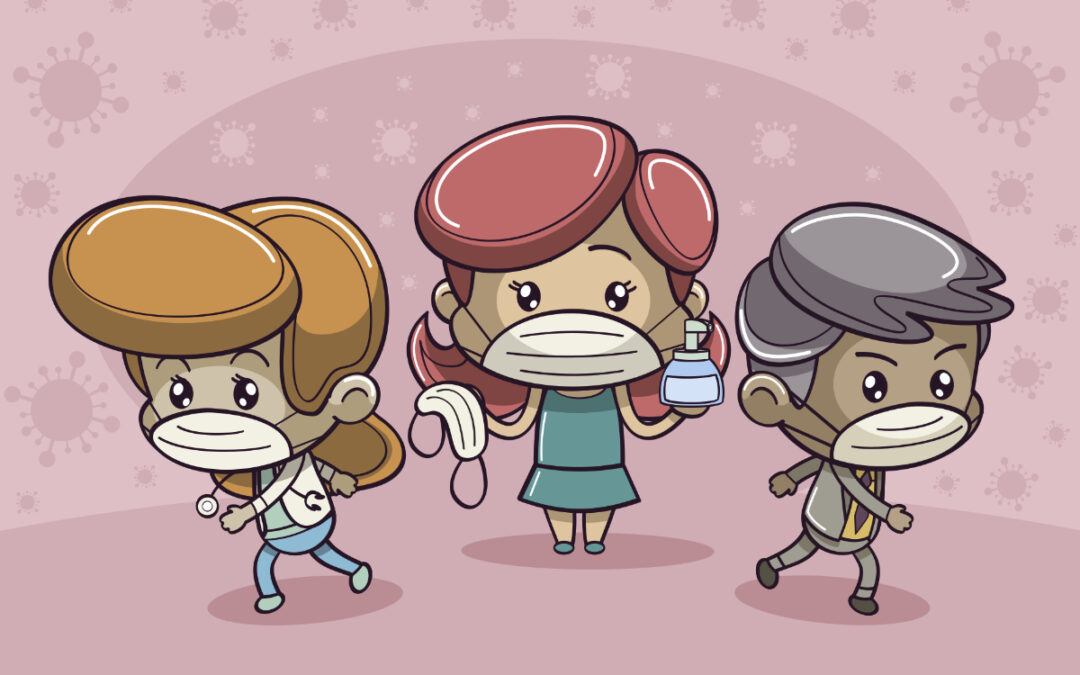What is RSV?
Respiratory syncytial virus (RSV) is a major cause of lower respiratory tract infections in infants and children worldwide. All ages can be affected with the most serious illness is usually seen in babies, toddlers, older adults, and those with weakened immunity. Most children will get RSV before they are two years old.
RSV is highly contagious, and just like the common cold or flu, it is usually spread by coming into contact with someone infected. Most infections occur in the fall and winter.
The average incubation period is five days, with most people feeling ill between two to eight days. The symptoms usually last about three to seven days.
What are the symptoms of RSV?
As RSV affects the lungs and airways, symptoms are similar to the common cold and include:
- Cough
- Runny nose
- Low-grade fever
- Sore throat
- Fatigue
- Headache.
Some people develop severe symptoms such as:
- Wheezing
- Shortness of breath, shallow, rapid breathing
- Severe cough
- Bluish or purple color of the lips and nail beds due to lack of oxygen
- Decreased appetite
- Irritability.
Complications
Although mild symptoms are more common, severe complications are possible and include:
- Pneumonia or bronchiolitis
- Asthma
- Middle ear infections
- Recurrent RSV infections
- Hospitalization to treat severe infections.
How is RSV diagnosed?
Sometimes RSV is difficult to diagnose because it looks so much like the common cold or flu.
Your healthcare provider will get a history and examine the head, neck, and chest. In addition, they may:
- Sample fluid from the nose or throat to send to a lab to check for the virus
- Do a chest x-ray if severe symptoms are present
- Collect blood and urine samples to rule out other diseases
Who is at risk of having severe symptoms?
Although most RSV infections cause mild symptoms, certain groups are more vulnerable:
- Immunocompromised people, such as organ transplant recipients, people receiving chemotherapy, those with autoimmune diseases, and HIV/AIDs.
- People with pre-existing heart or lung diseases such as chronic obstructive pulmonary disease (COPD), asthma, and congestive heart failure
- Premature infants
- Children with congenital heart or lung disease
What are the treatment options?
RSV infections are usually treated at home with supportive care to make the person more comfortable. Treatment involves encouraging fluids to avoid dehydration and giving acetaminophen for fever and sore throat. Treatment for severe RSV disease may require hospitalization in order to give intravenous (IV) fluids and oxygen. However, the symptoms go away in about 1-2 weeks in most people.
How to avoid getting RSV?
Since the virus can live in droplets that are released when someone coughs or sneezes, it can be spread by touching common surfaces such as doorknobs, toys, or countertops.
There are many ways to avoid getting RSV, such as:
- Wash hands frequently
- Avoid contact with someone who is ill
- Clean surfaces and objects such as toys and doorknobs with a disinfectant
- Avoid sharing glasses, utensils, and other common items with someone who is ill
- Use a tissue or sleeve to cover your mouth and nose when you sneeze or cough
- Wear a mask to keep airborne droplets from spreading
- Stay home if you feel sick
RSV and COVID-19
Both RSV and COVID-19—the disease caused by the SARS-CoV-2 virus—are respiratory viruses that cause flu-like symptoms in adults and children. The symptoms of both illnesses can differ from one person to another. It’s important to get a proper evaluation as soon as possible. Being affected with RSV may increase the risk of getting COVID-19 since it may lower a person’s immunity.
In 2020, the number of RSV cases dropped in the U.S. due to an increase in handwashing, wearing masks, and social distancing used to stop the spread of COVID-19. However, in the spring of 2021, there was an increase in the number of RSV cases. This increase occurred after the easing of these recommendations, especially in the southern states.
It is possible to have both RSV and COVID-19 simultaneously, and a person with RSV is at an increased risk of getting COVID-19. Since the symptoms of both diseases can be very similar, your doctor may recommend testing for one or both.
What are the future treatment plans for RSV?
Currently, there is no vaccine for RSV. However, many companies are currently working to develop vaccines and treatments to help reduce symptoms and decrease the risk of illness in vulnerable people. Anyone who is in a high-risk group should discuss available treatments with a healthcare provider.
Where can I get more information?
Here are some great ways to learn more about RSV. The best place to start is with your healthcare provider. They can answer any questions that you might have. Here are some websites that can give you additional information. Each of these will give you a lot of great information and RSV and its symptoms, treatment, and prevention:
The American Lung Association’s (RSV) information guide
The Center for Disease Control’s RSV health topic
The Cleveland Clinic’s guide to RSV

